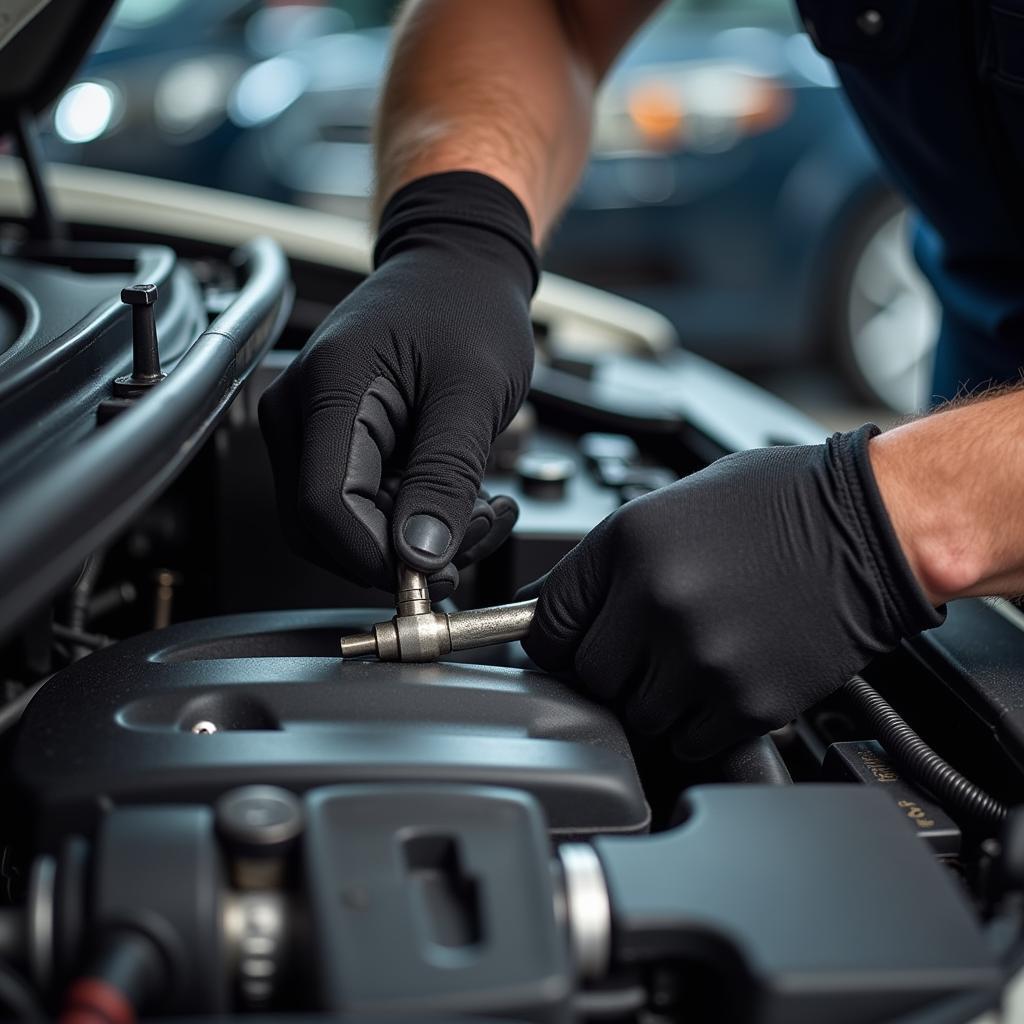Where Can I Take My Car to Get Serviced?
Finding a trustworthy and reliable car service can feel like searching for a needle in a haystack. With so many options out there, it’s tough to know which one is the right fit for you and your vehicle. Whether you’re dealing with a pesky check engine light, need a routine oil change, or are facing major repairs, choosing the right car service is essential for your peace of mind and your wallet.
Navigating Your Options: Where to Start Your Search
Before you start calling around for quotes, it’s important to determine what kind of service your car actually needs.
-
Routine Maintenance: For regular maintenance like oil changes, tire rotations, and filter replacements, a quick lube shop or a national chain like Jiffy Lube or Valvoline can be a convenient and affordable option.
-
Diagnostics and Repairs: If your car is experiencing problems that require diagnostics or more complex repairs, you’ll want to look for a more specialized shop. This could be an independent mechanic, a dealership service center, or a specialized repair shop (e.g., transmission repair, bodywork).
-
Manufacturer Recommendations: Consulting your car’s owner’s manual is a great starting point. It often outlines the recommended service intervals and may even provide a list of preferred service centers.
 Mechanic Inspecting a Car
Mechanic Inspecting a Car
The Dealership Dilemma: Pros and Cons
Dealerships often come with a higher price tag, but they offer several advantages:
- Specialized Technicians: Dealerships employ technicians trained specifically on your car’s make and model, ensuring they have the knowledge and expertise to handle any issues.
- Genuine Parts: Dealerships use original equipment manufacturer (OEM) parts, which are designed to meet your car’s exact specifications.
- Warranty Coverage: If your car is still under warranty, dealership repairs may be covered.
However, dealerships also have some drawbacks:
- Higher Costs: Dealerships generally charge higher labor rates and markups on parts compared to independent shops.
- Limited Flexibility: Dealerships may not be as flexible with scheduling or accommodating special requests.
The Independent Mechanic: A Personalized Approach
Independent mechanics can offer a more personalized and potentially more affordable experience:
- Relationship Building: Many car owners appreciate the personalized service and the ability to build a relationship with their mechanic.
- Competitive Pricing: Independent mechanics often have lower overhead costs, which can translate to more competitive pricing on labor and parts.
- Flexibility: Independent mechanics may be more willing to work with you on scheduling and accommodate special requests.
The downside? It’s crucial to find a reputable and trustworthy independent mechanic:
- Experience Matters: Look for a mechanic with extensive experience working on your car’s make and model.
- Certifications: ASE (Automotive Service Excellence) certification is a good indicator of a mechanic’s competence and professionalism.
what’s the difference between customer care and customer service
The Online Route: Leveraging Technology to Find Your Match
In today’s digital age, several online platforms and resources can help you find a reputable car service:
- Car Service Apps and Websites: Apps like RepairPal, Openbay, and YourMechanic connect car owners with local mechanics and provide quotes, reviews, and booking services.
- Online Directories: Websites like Yelp, Google My Business, and Angie’s List offer user reviews and ratings for local car service businesses.
- Manufacturer Websites: Many car manufacturers have online tools or directories that list authorized service centers in your area.
 Mechanic Using a Digital Tablet in a Repair Shop
Mechanic Using a Digital Tablet in a Repair Shop
Key Questions to Ask Before You Commit
Once you’ve narrowed down your options, don’t hesitate to ask potential car service providers these essential questions:
- What type of experience do you have with my car’s make and model?
- What are your labor rates and how do you calculate parts costs?
- Do you offer any warranties or guarantees on your work?
- Can you provide me with references from other customers?
- What are your payment options and do you provide detailed invoices?
what to get service on your car
When in Doubt, Trust Your Gut
Choosing where to take your car to get serviced is a personal decision. By doing your research, asking the right questions, and trusting your instincts, you can find a car service provider who meets your needs and provides exceptional care for your vehicle.
Remember, a well-maintained car is a safe and reliable car, so don’t delay seeking out the service your vehicle deserves!
FAQs
1. How often should I get my oil changed?
The frequency of oil changes depends on your car’s make, model, and driving conditions. Refer to your owner’s manual or consult with a trusted mechanic for guidance.
2. What are some signs that my car needs a tune-up?
Common signs include decreased fuel efficiency, engine misfires, rough idling, and strange noises coming from the engine.
3. Is it always cheaper to go to an independent mechanic?
While independent mechanics often have lower labor rates, the cost of parts and the complexity of the repair can influence the overall price.
4. What do I do if I’m not satisfied with the service I received?
Start by communicating your concerns with the service manager or owner. If the issue can’t be resolved amicably, you may consider filing a complaint with the Better Business Bureau or seeking legal advice.
how often should a new car be serviced
Still have questions?
Contact us via WhatsApp: +1(641)206-8880, Email: [email protected]. We have a 24/7 customer support team ready to assist you!

